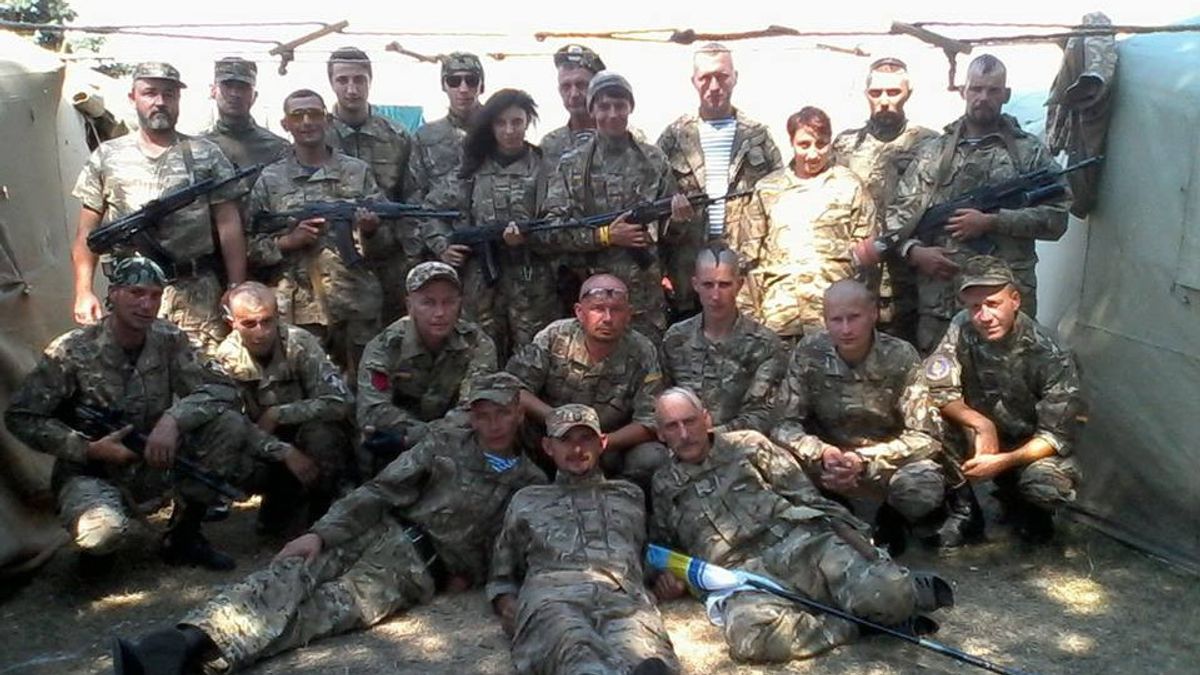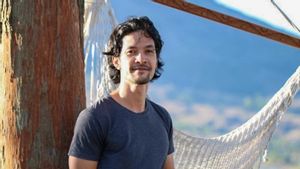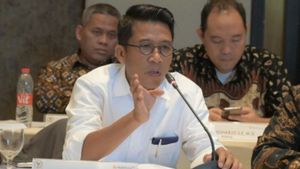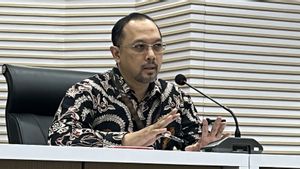JAKARTA - Valentyna Konstantinovska (79) is ready to take up arms and fight Russian troops to protect her city, if President Vladimir Putin orders an invasion of Ukraine.
Having been volunteering since the country's conflict broke out in 2014, Konstantinovska and his squad of 'babushka', older women, have dug trenches, provided supplies, made nets, offered medical care and even built lookout towers.
As tensions with Russia enter a critical week and the US warns troops could launch a bloody campaign to seize the country within days, some women are ready to do whatever it takes to help the war effort, even launching babushka battalions.
"I love my city, I'm not leaving. Putin can't scare us. Yes, it's scary, but we will defend our Ukraine to the end," Konstantinovska said at an event to teach city dwellers how to prepare and defend themselves. Al Jazeera February 15th.
Organized by the far-right Azov movement, the training offers basic lessons in first-response medical care, survival and evacuation, gun safety and how to fire a gun. Residents say it is the only safety or awareness training they have received, during nearly eight years of conflict.

"I've been dreaming since 2014 to learn to use a gun, but was told 'babushka', you're too old for that. You'll be knocked off your feet by retreating," explains Konstantinovska, lying on a yoga mat in a lemon-colored silk coat to practice aiming her rifle. assault model AK-47.
The Azov Movement, a right-wing all-volunteer infantry military unit, is an ultra-nationalist accused of harboring neo-Nazi and white supremacist ideologies. The Kyiv-based political wing found little support, they failed to win a seat in parliament in the most recent elections in 2019.
However, in Mariupol, the Azov military forces are often seen as defenders of the city after they recaptured it from a brief occupation by Russian-backed separatists in 2014. With their base 40km (18 miles) from the strategic port city, they are the first line of defense in the event of an attack. .
Since Azov was banned from Facebook in 2019 for hate speech, the event was advertised on Instagram without mentioning Azov's involvement and not all of the 300 or so attendees knew who was hosting it.

For Konstantinovska, who does not share Azov's political views, the only ideology he cares about is defending their homeland, which he agrees with wholeheartedly and does what he can to help.
Meanwhile, Liudmyla Smahlenko, 65, lost a relative who was killed while battling separatists in eastern Ukraine in 2015. She said after years of volunteering for the war effort, she had developed strong feelings for the youth who fought.
"We are already a babushka battalion. In 2014, we dug trenches, set up field bases and because we donated pillows and blankets, plates, mugs, we brought everything we could," said Smahlenko, dressed in pink-black from toe to toe. .
"You try to help the soldiers and they become like your children. Then one of them dies. A lot has been lost now and it feels like your children are dying every moment."
He is also ready to do whatever is necessary to protect Mariupol, to show his gratitude to the young men who appeared in 2014 and were "the first among those injured in the shooting".
"I am ready to fight if the Russians attack, even if I have to fight with them. They are not our brothers,"

In contrast to the Ukrainian government having downplayed the threat of an attack, which the United States says could happen at any moment now, the Azov movement says the crisis is now at its peak and has become very dangerous.
Questions have been raised about the government's preparations with damaged bomb shelters and no digital warning system, although one is planned. A civilian territorial defense team was formed earlier in the year to train reservists, but little training in a hostile environment has been offered to the public.
Azov members say they are organizing training, which they plan to now offer regularly to help prepare the population so they can be more independent in the event of an attack, allowing soldiers to concentrate on military matters.
"We can't bury our heads in the sand. Because of that, it's irresponsible at the very least, so we organized this event today specifically to take responsibility on our own shoulders. The civilians here are our responsibility and they need to know that we will stand here until the last drop of blood," an Azov commander, who asked not to be named, told Al Jazeera.
"We will stand our ground until we die," he said.
For Liudmyla Halbay, 72, who organizes free Ukrainian language classes in a predominantly Russian-speaking area, the training made her feel more secure, amid apocalyptic predictions led by Western media.
No matter how high the threat level was, however, his departure was not an option.
“I didn't have an evacuation bag in 2014 and I don't have one now. When everything was burning and crumbling around me, all I did was see how I could help,” said Halbay, dressed all in black with his fur hat blowing in the soft winter wind. .
“We have to endure somehow and this helps to assuage the fear. We also hope that the whole world will help us and that war will not happen."
The English, Chinese, Japanese, Arabic, and French versions are automatically generated by the AI. So there may still be inaccuracies in translating, please always see Indonesian as our main language. (system supported by DigitalSiber.id)













